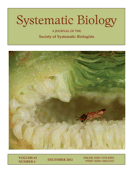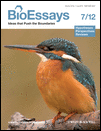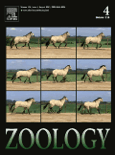
Biological Theory
Scope & Guideline
Unraveling the Threads of Biological Thought
Introduction
Aims and Scopes
- Philosophy of Biology:
The journal focuses on the philosophical underpinnings of biological concepts, including agency, cognition, and evolution, encouraging a deeper understanding of how these ideas shape our view of life. - Cognitive and Evolutionary Biology:
A significant emphasis is placed on cognitive processes within biological systems, examining how cognition influences evolutionary strategies and behaviors across species. - Interdisciplinary Approaches:
Biological Theory promotes interdisciplinary research that bridges biology with philosophy, anthropology, and cognitive science, fostering innovative frameworks for understanding biological phenomena. - Agency and Autonomy in Organisms:
The journal explores the concept of agency as a fundamental characteristic of living organisms, analyzing how autonomy and decision-making processes emerge in biological systems. - Historical Perspectives in Biology:
A unique contribution of the journal is its engagement with historical texts and figures in biology, revisiting foundational theories and their relevance to contemporary biological discussions.
Trending and Emerging
- Conceptual Ecology and Dysbiosis:
There is an increasing focus on the concept of dysbiosis and its ecological implications, addressing the complex interactions within microbial communities and their effects on health and evolution. - Cognition Beyond Neurons:
Emerging research is exploring cognition in non-neural organisms, challenging traditional views of intelligence and understanding cognition as a broader phenomenon across life forms. - Agency and Mutuality in Evolution:
A growing interest in agency as an inherent property of living organisms is evident, with research examining how mutual interactions shape evolutionary outcomes. - Philosophical Intersections with Biology:
The journal is increasingly addressing the intersections of philosophy with biology, particularly in areas such as biosemiotics and the philosophical implications of biological codes. - Evolutionary Perspectives on Culture:
Publications are increasingly integrating evolutionary perspectives on human culture, fostering discussions on cultural evolution and its interactions with biological processes.
Declining or Waning
- Traditional Genetic Determinism:
Discussions centered on strict genetic determinism have become less frequent, as the field shifts towards more nuanced understandings of gene-environment interactions and epigenetics. - Reductionist Approaches to Biology:
There is a waning interest in purely reductionist perspectives that isolate biological phenomena, with a greater emphasis now on holistic and systems-based approaches. - Static Models of Evolution:
The reliance on static models of evolution has decreased, as new frameworks that consider dynamic processes and interactions among organisms gain traction. - Classical Theories of Instinct:
Classical theories of instinctual behavior are receiving less attention, as contemporary research increasingly highlights the complexities of learned behaviors and environmental influences. - Fixed Notions of Fitness:
The traditional and fixed definitions of fitness are being re-evaluated, with a growing recognition of the context-dependent nature of fitness in evolutionary biology.
Similar Journals

Systematic Biology
Championing innovative methodologies in biological research.Systematic Biology is a premier journal published by Oxford University Press, dedicated to advancing the field of systematic biology through rigorous research and comprehensive reviews. Established in 1952, this esteemed journal has become a cornerstone of scholarship in Ecology, Evolution, Behavior and Systematics and Genetics, consistently ranking in the Q1 category as of 2023. With an impressive Scopus ranking—19th in Ecology and Evolution and 23rd in Genetics—Systematic Biology offers a platform for the dissemination of groundbreaking research, novel methodologies, and critical discussions that shape our understanding of biological diversity and evolution. While the journal does not currently offer open access options, it maintains a strong commitment to quality and integrity in publishing, ensuring that every article contributes meaningfully to the scientific community. Researchers, professionals, and students alike will find valuable insights and a wealth of knowledge within its pages, supporting their work and fostering a deeper appreciation for the intricate web of life.

Nonlinear Dynamics Psychology and Life Sciences
Advancing Understanding of Nonlinear Patterns in Life SciencesNonlinear Dynamics Psychology and Life Sciences is a leading journal published by the SOC CHAOS THEORY PSYCHOLOGY & LIFE SCIENCES, focusing on the intersection of nonlinear dynamics and psychological phenomena as well as their implications in life sciences. With an ISSN of 1090-0578 and an E-ISSN of 1573-6652, this journal stands out as a reputable source of innovative research and analytical studies that contribute significantly to the fields of applied mathematics and psychology. By delving into the complex behaviors and patterns of dynamic systems, the journal addresses vital contemporary issues, making it essential reading for researchers, professionals, and students alike. Although it operates on a traditional access model, the journal's insights are invaluable for understanding the empirical background behind nonlinear dynamics in psychological research. Recognized within the academic community for its contributions, it holds a 2023 Scopus ranking of #436 out of 635 in the Applied Mathematics category, placing it in the 31st percentile, and it is designated as Q3 in its quartile categorization. As a bridge between theoretical foundations and real-world applications, Nonlinear Dynamics Psychology and Life Sciences aims to foster interdisciplinary dialogue and inspire future research in this exciting and evolving field.

EVOLUTION AND HUMAN BEHAVIOR
Unraveling the Complex Tapestry of Human EvolutionEVOLUTION AND HUMAN BEHAVIOR, published by Elsevier Science Inc, is a leading interdisciplinary journal that explores the intricate relationships between evolutionary processes, human behavior, and cognition. With an impressive impact factor reflecting its rigorous peer-reviewed content and high citation rates, this journal falls in the prestigious Q1 quartile across multiple categories including Arts and Humanities, Ecology, Evolution, Behavior and Systematics, and Experimental and Cognitive Psychology, solidifying its critical role in advancing research in these fields. Since its inception in 1997 and moving towards 2024, it has consistently provided a platform for innovative research and insights, attracting contributions from a diverse range of disciplines. The journal is accessible through various open access options, ensuring that groundbreaking research is widely disseminated for maximum impact. Researchers, professionals, and students alike benefit from the cutting-edge studies published within, making EVOLUTION AND HUMAN BEHAVIOR an essential resource for those looking to deepen their understanding of the evolutionary context of human actions and interactions.

ORIGINS OF LIFE AND EVOLUTION OF BIOSPHERES
Charting the Evolutionary Landscape of BiospheresOrigins of Life and Evolution of Biospheres is a distinguished academic journal published by Springer, dedicated to exploring the intricate connections between biological evolution and planetary sciences. Since its inception in 1984, this journal has served as a vital platform for interdisciplinary research, fostering a deeper understanding of the origins and development of life on Earth and beyond. With an Impact Factor reflective of its rigorous scholarly contributions, Origins of Life is currently ranked Q3 in multiple categories, including Ecology, Evolution, Behavior and Systematics, Medicine (miscellaneous), and Space and Planetary Science. With a commitment to advancing knowledge in these crucial fields, the journal caters to a diverse audience—ranging from researchers and professionals to students—who are keen on delving into the complexities of life's evolution in relation to ecological and extraterrestrial contexts. Although the journal is not open access, its critical insights drive significant academic discourse and innovation, making it an essential resource for those dedicated to understanding the biospheric processes that shape the living world.

Phenomenology and the Cognitive Sciences
Transforming Research into Insightful Philosophical InquiryPhenomenology and the Cognitive Sciences is a leading interdisciplinary journal published by Springer, dedicated to exploring the intersections of cognitive science and phenomenological philosophy. Since its inception in 2004, this journal has established itself as a vital resource for researchers and scholars, achieving Q2 status in Cognitive Neuroscience and Q1 in Philosophy according to the 2023 Category Quartiles, highlighting its significance in both fields. With an ISSN of 1568-7759 and an E-ISSN of 1572-8676, the journal provides a platform for innovative research, fostering insightful dialogues that bridge the gaps between cognitive processes and human experience. Its current Scopus rankings place it in an impressive 97th percentile for Philosophy and 59th percentile for Cognitive Neuroscience, reflecting its academic impact. Although not an open-access journal, researchers and students can access its rich repository of articles to deepen their understanding of how cognitive science informs philosophical inquiry and vice versa, making it an indispensable tool for anyone committed to advancing knowledge in these vital areas.

BIOESSAYS
Exploring the Nuances of Molecular BiologyBIOESSAYS, published by WILEY, is a leading academic journal dedicated to the dynamic fields of biochemistry, genetics, and molecular biology. With an impressive impact factor and recognized as a Q1 journal in its category for 2023, it ranks 49 out of 221 in the Scopus database, placing it within the 78th percentile among its peers. Since its inception in 1984, BIOESSAYS has served as a vital platform for researchers, professionals, and students, facilitating the dissemination of pivotal findings, innovative theories, and review articles that shape the current understanding of biological sciences. Although it does not offer open access, the journal remains key for those seeking to stay at the forefront of scientific discovery and discussion within this ever-evolving discipline. With its commitment to high-quality, peer-reviewed content, BIOESSAYS continues to influence future research directions and academic discourse.

Annual Review of Ecology Evolution and Systematics
Exploring the Dynamic Interplay of Nature's ProcessesThe Annual Review of Ecology, Evolution, and Systematics, published by Annual Reviews, is a leading academic journal dedicated to advancing the understanding of ecological and evolutionary processes. With a commendable impact factor and impressive rankings—9th in both the Ecology, Evolution, Behavior and Systematics category and the Environmental Science category—this journal is recognized for its rigorous peer-reviewed articles that synthesize research findings across a wide range of topics within the fields of ecology and evolutionary biology. Established in 2003, this annual publication aims to provide researchers, professionals, and students with comprehensive insights into the latest developments and trends within these dynamic disciplines. By facilitating access to high-quality scholarly articles, the Annual Review of Ecology, Evolution, and Systematics continues to play a crucial role in fostering scientific discourse and discovery.

Metode Science Studies Journal
Bridging Disciplines for a Deeper Understanding of ScienceMetode Science Studies Journal, published by UNIV VALENCIA, BOTANICAL GARDEN UV, is an esteemed open-access journal dedicated to advancing scholarly discourse in the fields of history and philosophy of science and multidisciplinary studies. Since its inception in 2013, the journal has positioned itself as a vital resource for researchers, professionals, and students, fostering an environment for innovative research and cross-disciplinary dialogue. Based in the vibrant city of Valencia, Spain, this journal aims to publish high-quality articles that explore the intricate relationships between scientific practices and philosophical inquiries. With a current impact factor demonstrating its relevance in the academic community, the journal is indexed in Scopus, ranking in the 52nd percentile for history and philosophy of science and the 33rd percentile for multidisciplinary studies. Scholars can access a breadth of research outputs that span from 2015 to 2024, thereby contributing significantly to the intellectual landscape of the respective fields.

BIOLOGY & PHILOSOPHY
Navigating the Philosophical Frontiers of Biological InquiryBIOLOGY & PHILOSOPHY, published by SPRINGER, is a leading journal that explores the intricate and dynamic interplay between biology and philosophy. With an impressive impact factor in the Q1 category across multiple disciplines including Agricultural and Biological Sciences, History and Philosophy of Science, and Philosophy, this journal has firmly established itself as an essential resource for researchers, professionals, and students alike. Since its inception in 1986 and continuing through 2024, BIOLOGY & PHILOSOPHY fosters critical inquiry and discussion, inviting contributions that advance the understanding of biological sciences from philosophical perspectives. Although it operates under a traditional subscription model without Open Access options, its high Scopus rankings—#38 in Philosophy and #14 in History and Philosophy of Science—underscore its significance and influence in contemporary research. For those keen on delving deeper into the ethical, epistemological, and conceptual challenges posed by biological research, this journal serves as a compelling platform for groundbreaking scholarship.

ZOOLOGY
Publishing impactful research for a deeper understanding of wildlife.ZOOLOGY, an esteemed journal published by Elsevier GmbH, stands at the forefront of research in the Animal Science and Zoology fields. With a notable impact factor and recognized as a Q1 category journal in its discipline, ZOOLOGY is highly regarded among researchers, ranking #98 out of 490 in Scopus rankings. Founded in 1994 and continuing through to 2024, the journal aims to publish cutting-edge, peer-reviewed articles that contribute significantly to the understanding of zoological sciences. Based in Munich, Germany, ZOOLOGY provides both subscription and open access options, ensuring that influential research reaches a wider audience. It serves as an essential platform for disseminating innovative findings, connecting scholars globally, and fostering interdisciplinary collaboration to advance zoological knowledge.